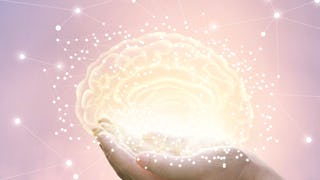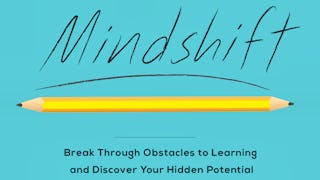This course gives you easy access to the invaluable learning techniques used by experts in art, music, literature, math, science, sports, and many other disciplines. We’ll learn about how the brain uses two very different learning modes and how it encapsulates (“chunks”) information. We’ll also cover illusions of learning, memory techniques, dealing with procrastination, and best practices shown by research to be most effective in helping you master tough subjects.

Enjoy unlimited growth with a year of Coursera Plus for $199 (regularly $399). Save now.

Learning How to Learn: Powerful mental tools to help you master tough subjects


Instructors: Dr. Terrence Sejnowski
Top Instructor
4,121,820 already enrolled
Included with
(92,918 reviews)
Skills you'll gain
Details to know

Add to your LinkedIn profile
See how employees at top companies are mastering in-demand skills

There are 4 modules in this course
Although living brains are very complex, this module uses metaphor and analogy to help simplify matters. You will discover several fundamentally different modes of thinking, and how you can use these modes to improve your learning. You will also be introduced to a tool for tackling procrastination, be given some practical information about memory, and discover surprisingly useful insights about learning and sleep. <br><br>(Please note that this module should only take about an hour--the extra time quoted relates to purely optional activities.)
What's included
15 videos5 readings2 assignments1 peer review
In this module, we’re going to be talking about chunks. Chunks are compact packages of information that your mind can easily access. We’ll talk about how you can form chunks, how you can use them to improve your understanding and creativity with the material, and how chunks can help you to do better on tests. We’ll also explore illusions of competence in learning, the challenges of overlearning, and the advantages of interleaving.
What's included
12 videos1 reading3 assignments
In this module, we talk about two intimately connected ideas—procrastination and memory. Building solid chunks in long term memory--chunks that are easily accessible by your short term memory—takes time. This is why learning to handle procrastination is so important. Finally, we talk about some of the best ways to access your brain’s most powerful long term memory systems.
What's included
14 videos1 reading3 assignments1 peer review
In this module we’re going to talk more about important ideas and techniques that will enhance your ability to learn. You’ll also discover how to more profitably interact with fellow learners, how to recognize your own strengths, and how to avoid the “imposter syndrome.” Fighter pilots and surgeons use checklists to help them with their critical duties—you can use a similar checklist to help you prepare for tests. Ultimately, you will learn more about the joys of living a life filled with learning!
What's included
16 videos3 readings3 assignments
Instructors

Offered by
Explore more from Personal Development
 Status: Preview
Status: PreviewArizona State University
 Status: Preview
Status: Preview Status: Preview
Status: PreviewRice University
 Status: Free Trial
Status: Free TrialDeep Teaching Solutions
Why people choose Coursera for their career




Learner reviews
92,918 reviews
- 5 stars
86.06%
- 4 stars
12.13%
- 3 stars
1.28%
- 2 stars
0.22%
- 1 star
0.29%
Showing 3 of 92918
Reviewed on Nov 13, 2015
I found this course to be incredibly helpful. I am 33 and wish that I would have been taught a more efficient way of learning many years ago. There are definitely some great takeaways from this class.
Reviewed on Jan 1, 2020
This class feels basic, but it hold deep truths about how to be a better learner and it provides great research you can go deeper into on your own. Excellent instruction, you get out what you put in.
Reviewed on Jan 31, 2016
Inspriational! Well presented, interesting and useful. Everybody should take this course. Thank you to all those involved in developing this course. I'm already putting the teaching into practice.

Open new doors with Coursera Plus
Unlimited access to 10,000+ world-class courses, hands-on projects, and job-ready certificate programs - all included in your subscription
Advance your career with an online degree
Earn a degree from world-class universities - 100% online
Join over 3,400 global companies that choose Coursera for Business
Upskill your employees to excel in the digital economy
Frequently asked questions
To access the course materials, assignments and to earn a Certificate, you will need to purchase the Certificate experience when you enroll in a course. You can try a Free Trial instead, or apply for Financial Aid. The course may offer 'Full Course, No Certificate' instead. This option lets you see all course materials, submit required assessments, and get a final grade. This also means that you will not be able to purchase a Certificate experience.
When you purchase a Certificate you get access to all course materials, including graded assignments. Upon completing the course, your electronic Certificate will be added to your Accomplishments page - from there, you can print your Certificate or add it to your LinkedIn profile.
Yes. In select learning programs, you can apply for financial aid or a scholarship if you can’t afford the enrollment fee. If fin aid or scholarship is available for your learning program selection, you’ll find a link to apply on the description page.
¹ Some assignments in this course are AI-graded. For these assignments, your data will be used in accordance with Coursera's Privacy Notice.

